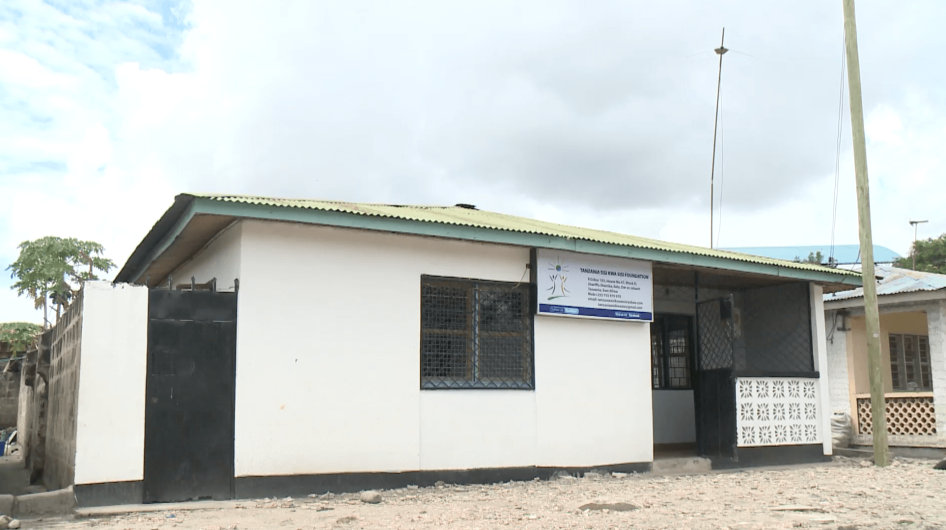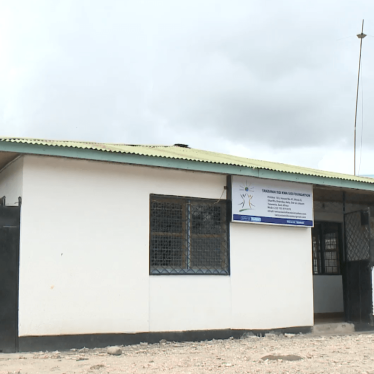It is not often that the World Bank publicly adopts a critical stance that stands up for human rights in one of its client countries, and does so even before other donors with human rights-focused foreign policies.
But in a surprising turn of events, the World Bank has done just that in Tanzania, a country that has in the last three years become increasingly associated with repression and discrimination.
When Regional Commissioner for Dar es Salaam Paul Makonda announced a campaign against gay men in the East African city in late October, the Bank, which is Tanzania’s largest donor, took an unprecedented step: On November 7, it suspended all Bank missions to Tanzania, citing the safety of Bank employees.
The same month, the World Bank decided not to put forward a $300 million education loan to Tanzania, expressing concern over the exclusion of pregnant girls and teenage mothers from Tanzanian schools.
The Tanzanian government responded. According to a World Bank statement, in a meeting on November 17 with senior Bank officials, President John Magufuli “assured the Bank that Tanzania will not pursue any discriminatory actions related to harassment and/or arrest of individuals, based on their sexual orientation.”
The Bank’s vice president for Africa, Hafez Ghanem, told the press with no ambiguity, “The government reassured us that there would be no more discrimination against people of any ethnicity, religion or sex orientation.”
Magufuli agreed in the same meeting “to find a way for pregnant girls to return to school” and to reconsider a troubling Statistics Law that suppresses freedom of expression, and, if fully enforced, would potentially get the World Bank into trouble if it published its own statistics on human development.
Dramatic turnaround?
Can we expect a dramatic turnaround on human rights in Tanzania? Unlikely.
The extreme nature of Mr Makonda’s threats – to round up all gay men, subject them to forced anal examinations, and jail them for life – are what attracted international attention, including from the World Bank. But other forms of discrimination against lesbian, gay, bisexual and transgender people are persistent and pervasive.
Since 2016, the government has banned HIV prevention activities, targeting men who have sex with men and other key populations, prohibited the distribution of water-based lubricant for HIV prevention, and raided meetings on health and human rights, accusing activists of “promoting homosexuality.”
Magufuli has not renounced any of these discriminatory policies and practices, which deprive LGBT people of the right to the highest attainable standard of health.
Charges still stand against 10 men arrested in Zanzibar in early November for allegedly participating in a same-sex wedding. Their lawyers say they were simply relaxing at the beach.
Although the foreign minister denounced the Dar es Salaam commissioner’s anti-gay “task force,” pledging that Tanzania would uphold its international treaty obligations, his statement failed to acknowledge that Tanzania is already flouting international law by denying essential health services and arbitrarily arresting people based on their presumed sexual orientation.
The World Bank now states that the education loan will only be considered when the government of Tanzania demonstrates its commitment to girls’ education.
Meanwhile, other human-rights abuses continue: The government has banned newspapers, fined TV stations, arrested and prosecuted journalists, bloggers, and opposition politicians, and put into effect a slew of legislation that curtails freedom of expression and the right to privacy.
It’s encouraging to see President Magufuli publicly commit his government to ending some of Tanzania’s most egregious forms of exclusion and discrimination. But the sincerity of that commitment remains to be seen. And much more needs to change for Tanzania, previously known as a politically stable partner in the region, to shed its Magufuli-era reputation as a bulldozer of human rights.









